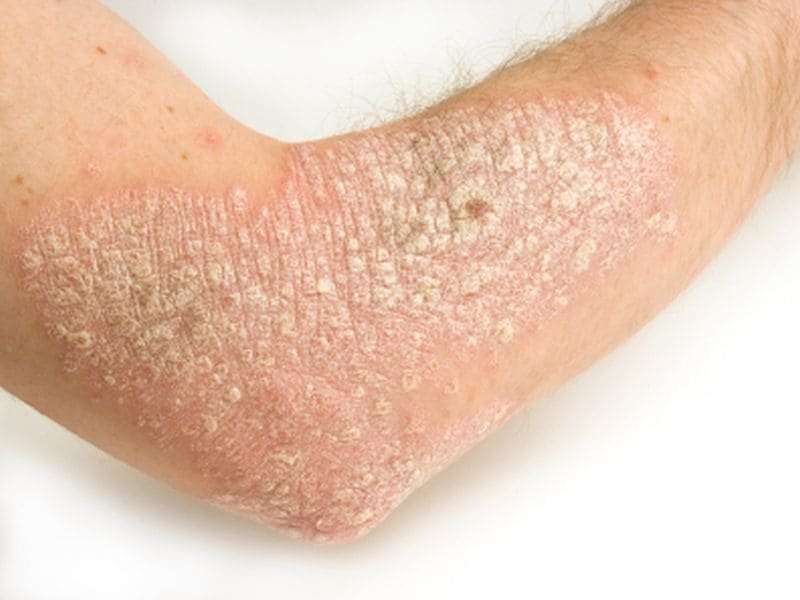(HealthDay)—Cardiovascular risk should be carefully evaluated in patients with psoriatic arthritis, according to a study published online Nov. 5 in the International Journal of Rheumatic Diseases.
Rubén Queiro, M.D., Ph.D., from Hospital Universitario Central de Asturias in Oviedo, Spain, and colleagues assessed the prevalence of cardiovascular risk factors among 340 consecutive patients with psoriatic arthritis seen in a tertiary care hospital versus the prevalence among 600 outpatients without inflammatory conditions.
The researchers found higher frequencies of hypertension (odds ratio [OR], 2.4; 95 percent confidence interval [CI], 1.6 to 2.7; P < 0.0001), diabetes (OR, 2.8; 95 percent CI, 1.7 to 4.3; P < 0.0001), obesity (OR, 2.1; 95 percent CI, 1.5 to 2.8; P < 0.0001), and tobacco use (OR, 1.4; 95 percent CI, 1 to 1.8; P < 0.05) among patients with psoriatic arthritis compared with controls. Thirty-two patients with psoriatic arthritis (9.4%) experienced CVD events compared with 35 patients without inflammatory conditions (5.8%; OR, 1.68; 95 percent CI, 1.02 to 2.76; P < 0.05). CVD events included ischemic heart disease, cerebrovascular disease events, and ischemic peripheral vascular disease. Independent cardiovascular disease-associated factors included onset of psoriasis at age >40 years (OR, 3.4; 95 percent CI, 1.1 to 10.0; P < 0.05), a high number of swollen joints during evolution (OR, 2.9; 95 percent CI, 1.1 to 8; P < 0.05), hypertension (OR, 5.3; 95 percent CI, 1.6 to 17.6; P < 0.01), and dyslipidemia (OR, 2.6; 95 percent CI, 1 to 7.2; P < 0.05).
"Cardiovascular risk should be carefully evaluated in patients with psoriatic arthritis whose disease presents a high inflammatory burden and in those with late-onset psoriasis," the authors write.
More information: Abstract/Full Text (subscription or payment may be required)
Copyright © 2018 HealthDay. All rights reserved.





















